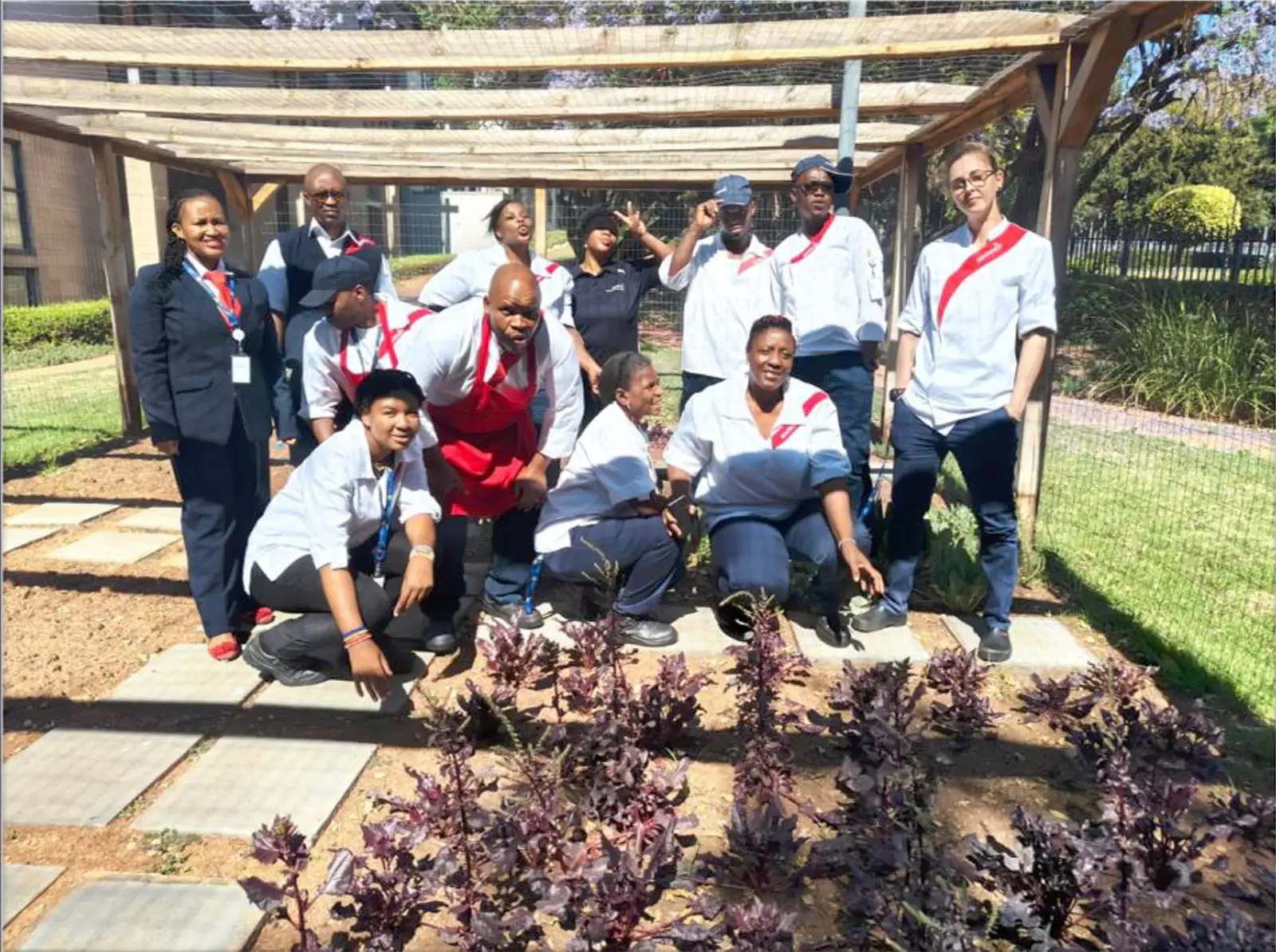Last month, Sodexo held WasteLESS Week activities at sites across the world. Read on as we take you through some of what happened, why waste matters, and what we’ve been doing about it.
Waste is a global problem, whether it’s leaving lights on unnecessarily, cooling empty offices, wasting paper or taking extra food at the canteen and not eating it, we are all guilty of waste to some extent. Imagine the effect if we could all collectively take small actions to reduce waste.
To illustrate the scale of the issue, nearly 40% of food produced around the world ends up as waste, and – shockingly – if food waste were a country, it would be the third largest emitter of greenhouse gasses, responsible for 10% of the world’s emissions. Wasting food generates more greenhouse gas emissions each year than all the commercial flights in the world.
Similarly, the effects of wasting energy through the lighting, heating, and cooling of buildings are startling. It is estimated that up to 30% of the energy consumed in commercial buildings alone goes to waste. This presents a huge opportunity to save resources and money for those businesses that take steps to be more efficient. LED lights, smart scheduling of heating, cooling, and lighting, and the use of AI-powered software to detect leakages can all help reduce waste and save costs.
Food waste
With catering services making up a large part of Sodexo’s daily operations in the Middle East, food waste is an area where we feel we can make a meaningful impact. When food is left uneaten, it undermines the sustainability of the whole food system. It’s not just the item itself that’s wasted, it’s all the resources that were used to produce it, such as water, land, energy, labor, and capital.
Beyond that, even the disposal of food waste leads to greenhouse gas emissions – and food loss and waste can also negatively impact food security and availability, which in turn contributes to the rising cost of food. It’s a circular economy, and we all have our part to play.
Because, without being sustainable, food systems cannot be resilient – we need to maximize the use of the food we produce on a global scale and minimize food waste.
At Sodexo, 60% of our catering services business is linked to food and serving millions of consumers worldwide each day, so we feel we have a responsibility to play our part and make a difference.
Our food waste targets
As a catering food services company, reducing food waste is the single most important climate and social action we can take to cut our emissions as an organization. As we’ve taken the ambitious commitment to reduce our food waste as a business by 50% by 2025, we take active steps to be involved in food waste reduction initiatives.
Our 2025 target is to reduce our food waste by 50%. As part of this, we’ve installed the WasteWatch program in 85% of our food service sites globally.

What is WasteLESS Week?
Now in its 11th year, WasteLESS Week is a global Sodexo initiative that happens every October. The aim is to empower our staff, clients, and guests to reduce waste in all its forms throughout the week and to raise awareness of an important issue. We also use the week as a springboard to help all our stakeholders make lasting changes so that the impact goes beyond this one week.
Through WasteLESS Week, Sodexo wants to drive awareness of the huge opportunity we have across our facilities management services to reduce our carbon emissions by reducing our waste profile. Whether that’s through making our client’s buildings more energy efficient, putting effective recycling programmes in place, or reducing food waste in our catering services.
For us, this means mitigating waste in all forms through constantly reviewing our operations and processes, collaborating with external partners, and educating our consumers.
We also aim to follow the principles of the circular economy, to ensure all waste has a beneficial use and by promoting reuse, recycling, and composting to eliminate avoidable waste going to landfill.
Sodexo MEA’s regional WasteLESS initiatives
Algeria
Across Sodexo’s Algerian sites, our staff took part in a series of workshops to raise awareness of their environmental impact, and posters were put up to encourage clients and staff alike to think about issues including their portion size, their energy usage, and their carbon footprints.
Qatar
At Sodexo Qatar, there were client briefings, training and inspection initiatives, talks, monitoring, and fliers – both onshore and offshore – to help our staff make the most of the opportunity to save resources and energy in their processes.
South Africa

In our South Africa office, our teams are now reducing waste by using coffee grounds generated on-site for compositing, to aid growth in the herb garden that’s used for small garnishes in the kitchen. With over 2.25 billion cups of coffee consumed daily worldwide, this sort of initiative could make a huge difference if adopted on a wider scale.
Additionally, video screens across Sodexo’s sites in the South Africa region were installed to raise awareness of the importance of food waste.
United Arab Emirates
At one of our hospital sites in the UAE, The Sodexo team and hospital staff had the opportunity to take part in fascinating talks and hands-on workshops that gave them practical advice and tips on how to reduce their collective carbon footprint – both on-site, when dealing with clients and customers, and in their everyday lives at home.
At Sodexo, we have waste reduction at the forefront of our minds year-round. WasteLESS Week is one of many tools in our arsenal that we use to spread awareness of the issue of waste amongst staff, clients, and the public.


